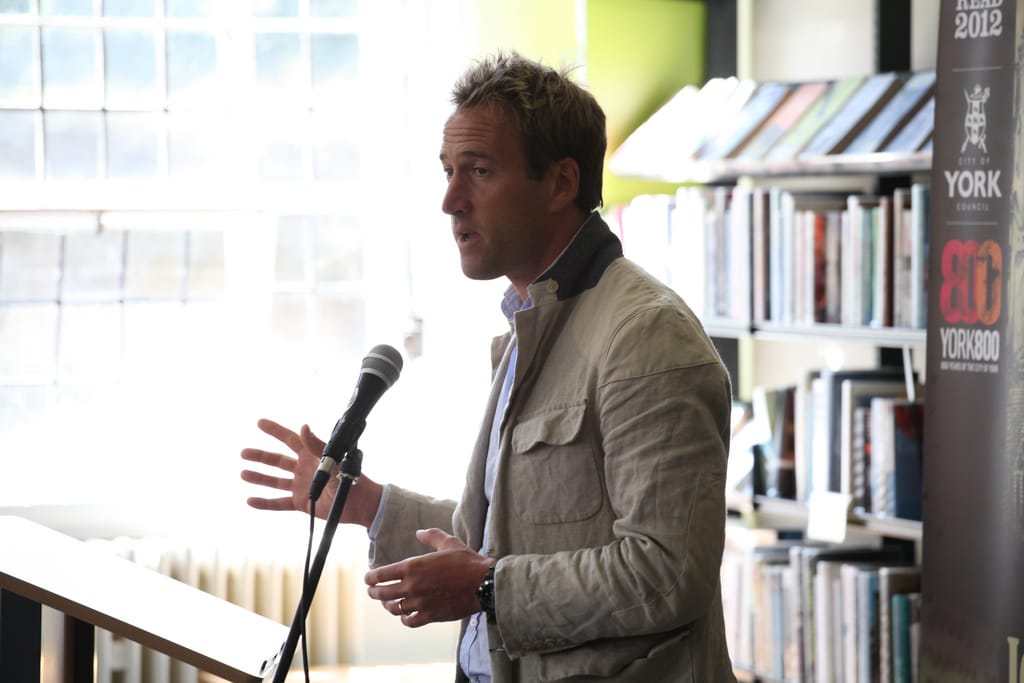(Image sourced from Flickr and courtesy of City of York Council)
“It [Confidence] is the single most important attribute any child can have. I truly wish there were classes to focus on it…With confidence comes personality. With personality comes a form of charm, wit and wisdom. These can camouflage any shortcomings in the academic stakes. Boost the country’s confidence levels and we will solve so many of Britain’s ills.”
Ben Fogle, Times article (April 2016), authored by Sian Griffiths
Ben Fogle is an amazing human being. The well-liked TV presenter has an eye-wateringly impressive list of achievements that emblazon his biography: he has rowed the Atlantic Ocean, crossed Antartica on foot, ran numerous marathons, won an array of awards and ran across the Sahara. He even beat Sid Owen in a boxing match.
I like to listen to Ben Fogle and I’m sure that his heartfelt appeal to help our children to become more confident no doubt struck a nerve with many parents and teachers.
He makes many good points in his Times article and in his wider talks, asking hard questions about the purpose of education and the success of our existing state school system. At once, I think he gets a huge amount right, but his argument offers a simple anewer for what proves a complex problem.
Let me start by agreeing with Ben that confidence is a crucial personal attribute that can help determine the success of our children. I have gone as far as writing a book about confidence, so I recognise its value, but also how complex a concept it really proves. Too little confidence and you can be crippled by indecision and self-doubt, and yet, too much confidence can prove just as damaging (over-confident politicians – anyone sprint to mind?).
Getting the right degree of confidence is tricky; teaching it to hormonal teens, well that is an even harder task.
I agree with Ben that some state schools are simply unable to offer the wealth of extra-curricular activities considered the norm in many independent school settings. However, the proposal to teach ‘confidence lessons‘ doesn’t get to the root of state schools being more narrowly focused on examination outcomes, nor would it prove an easy panacea.
There is a bigger picture around state school underinvestment, involving a systematic stripping away of support services and funding, alongside the ever-present iron fist of a punitive accountability, that means that many schools simply cannot afford to focus on some of the wider enrichment that Ben describes.
Ben’s statement that confidence can “camouflage any shortcomings academics” has a partial truth. We know that in social situations people defer to the most confident in the group, with talkative people being deemed both more confident and more competent. The advice to ‘fake it until you make it’ may feel somewhat morally dubious, but given professional and social success can misinterpret a show of confidence for the real thing, it may prove helpful for our students. The truth is only partial though, as truly confident people gain confidence from their competence and developing expertise.
There is no doubt a place for giving our students important messages about developing confidence. Helping them understand that it is more than charm and superficiality, rooted as it is in experience and practice (often arduous practice that is a real struggle), has real value. We can convey these messages in school assemblies and time given over to PHSE, if that is what Ben means by classes on confidence.
We should be wary though of replacing academic subjects with confidence lessons, otherwise we will create more ills than we solve. ‘Confidence lessons’ would provide little more than a temporary ego boost for our students, whereas academic achievement builds authentic confidence that is sustained.
Of course, the best course is to do our best to eradicate those academic shortcomings with brilliant teaching and passionate subject expertise, whilst also helping students understand how to ‘perform’ and to be socially confident. For example, if our students were to authentically debate the history that they have been taught they may well deepen their academic knowledge whilst learning how to ‘perform’ at the same time.
Let’s not aim to camouflage academic weakness, but instead pursue the ideal of students with competence and confidence. We shouldn’t ever see academic success and personal confidence as mutually exclusive – they go hand in hand.
We don’t want to have an aim for education that camouflages academic shortcomings, otherwise we will create a nation of confident fools.






Comments